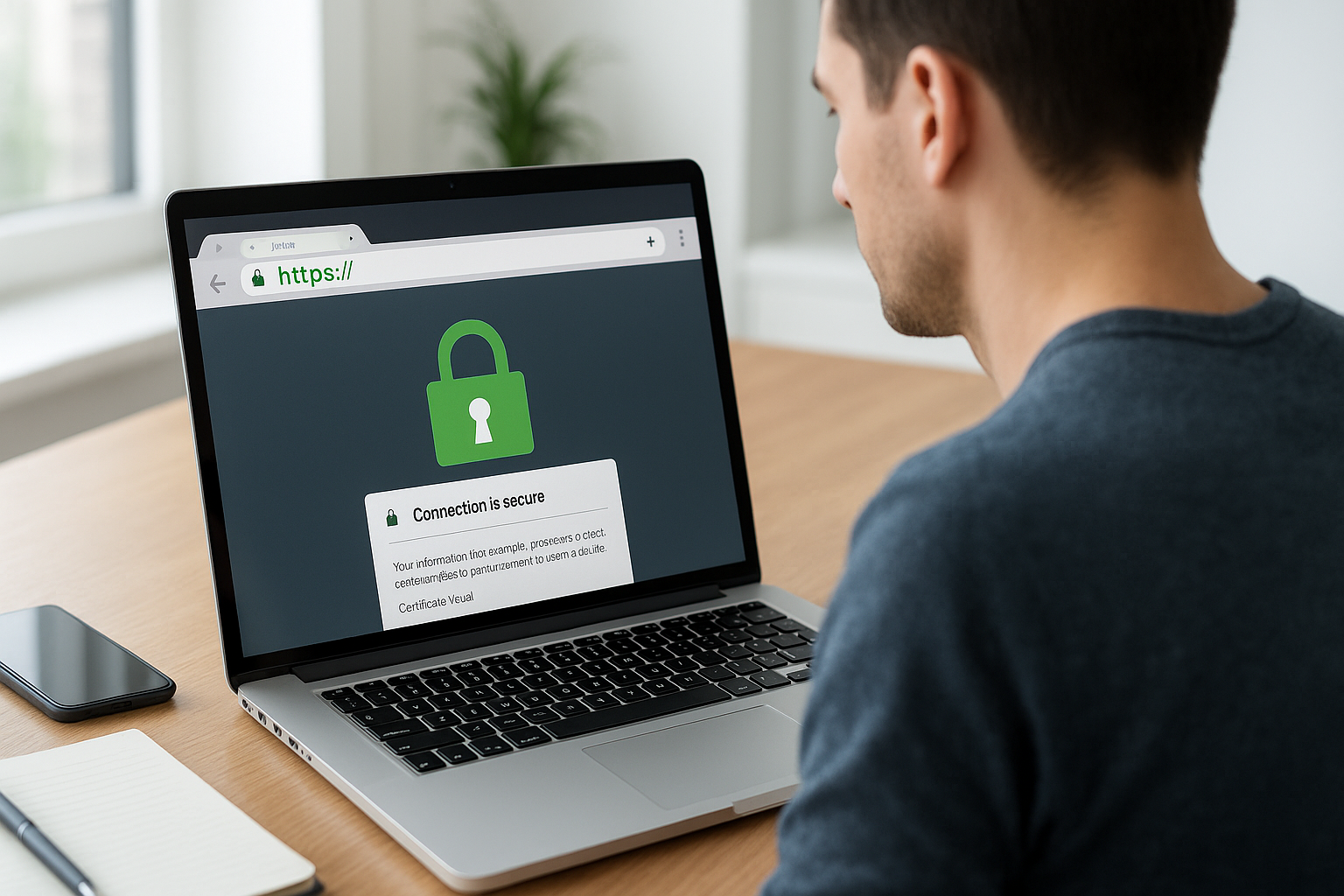
16
Why Checking SSL Certificates Matters for Every Website Owner?
Learn why SSL certificates are essential for website security and SEO. Discover how to check your SSL certificate status to protect your visitors and brand.
Introduction
Every website that handles data, even something as simple as a contact form, must protect that data during transmission. This is where SSL (Secure Sockets Layer) certificates come in. SSL encrypts the connection between a visitor’s browser and your web server, ensuring that sensitive information like passwords, payment details, and personal data cannot be intercepted.
But installing an SSL certificate once is not enough. Certificates can expire, become misconfigured, or be issued incorrectly. If your SSL certificate stops working, visitors will see browser warnings and may leave your site immediately.
This guide explains why checking SSL certificates is essential for every website owner and how to do it easily.
What Is an SSL Certificate
An SSL certificate is a digital certificate that authenticates your website’s identity and enables encrypted connections over HTTPS. When a browser connects to a site with SSL, it verifies the certificate to confirm that:
- The site really belongs to the domain owner
- The certificate was issued by a trusted Certificate Authority (CA)
- The certificate is valid and has not expired
If everything checks out, the browser establishes a secure HTTPS connection. If not, it shows a security warning to the user.
Reference: Mozilla - What is an SSL certificate
Why SSL Matters for Every Website
1. Protecting User Data
SSL encrypts data sent between the browser and your server. This prevents attackers from intercepting sensitive information such as:
- Login credentials
- Payment details
- Email addresses and personal information
Without SSL, data is sent in plain text, making it easy to steal through man-in-the-middle attacks.
Reference: Cloudflare - What is SSL
2. Building User Trust
Modern browsers mark sites without SSL as “Not Secure” in the address bar. This warning discourages users from entering any information and damages your credibility.
Even if your site does not process payments, users expect to see the padlock icon. It shows that you care about their privacy and security.
3. Improving SEO Rankings
Google confirmed that HTTPS is a ranking signal in its search algorithm. This means sites with SSL are more likely to rank higher than those without it.
Reference: Google Search Central - HTTPS as a ranking signal
Using SSL also improves your Core Web Vitals and Page Experience scores, which influence SEO performance.
4. Avoiding Browser Blocks
Browsers like Chrome, Firefox, and Safari block access to sites with expired or invalid certificates. Visitors will see a full-page warning that says your connection is not private. This can instantly destroy your site’s traffic and reputation.
5. Securing Your Brand and Preventing Attacks
SSL certificates also prevent attackers from impersonating your site. Without SSL, it is easier for hackers to perform phishing attacks by cloning your domain. SSL adds an extra layer of authentication that proves your site is the real one.
Common SSL Problems to Watch For
Even if your site has SSL, it can still fail if:
- The certificate has expired
- The domain name does not match the certificate
- The certificate chain is incomplete or misconfigured
- Mixed content (some resources are still loaded over HTTP)
These problems can cause browser warnings and block visitors.
Reference: DigiCert - Common SSL errors
How to Check Your SSL Certificate
Use: SSL Checker
This free browser-based tool shows you:
- The certificate issuer (CA)
- The validity period (start and expiry date)
- The domain name(s) covered
- Whether the certificate chain is complete and valid
How to use it:
- Open the SSL Checker
- Enter your website URL
- View the results to confirm your SSL status
This takes only a few seconds and helps you avoid unexpected downtime.
How Often Should You Check SSL
You should check your SSL certificate at least once a month. Many certificates are valid for 90 days (especially free ones like Let’s Encrypt), so it is easy to forget when they need renewal.
Also, check SSL status after:
- Changing hosting providers
- Migrating your domain
- Making DNS changes
- Installing a new certificate manually
Setting a reminder or using automated monitoring can help ensure your SSL never expires unnoticed.
Best Practices for Managing SSL Certificates
- Enable HTTPS sitewide so all pages are encrypted.
- Redirect all HTTP traffic to HTTPS automatically.
- Renew your certificate early before it expires.
- Use HSTS (HTTP Strict Transport Security) to force HTTPS connections.
- Choose a trusted Certificate Authority (CA) to avoid trust errors.
Reference: Qualys SSL Labs - SSL best practices
What Happens If SSL Expires
If your SSL certificate expires, visitors will see security warnings and may be blocked from entering your site. This can:
- Cause a sudden drop in traffic
- Hurt your search rankings
- Damage your brand’s credibility
- Lead to lost sales or sign-ups
Checking SSL regularly prevents this from happening.
Conclusion
SSL certificates are not optional. They protect your users’ data, build trust, improve your SEO, and secure your brand from impersonation. But simply installing SSL once is not enough.
Checking your certificate regularly ensures it stays valid, trusted, and fully configured. Tools like the SSL Checker from Recipesz Online Tools make it easy to monitor your SSL health in seconds.
By keeping your SSL certificate up to date, you protect your visitors and your business while improving your website’s performance and reputation.
Contact
Missing something?
Feel free to request missing tools or give some feedback using our contact form.
Contact Us